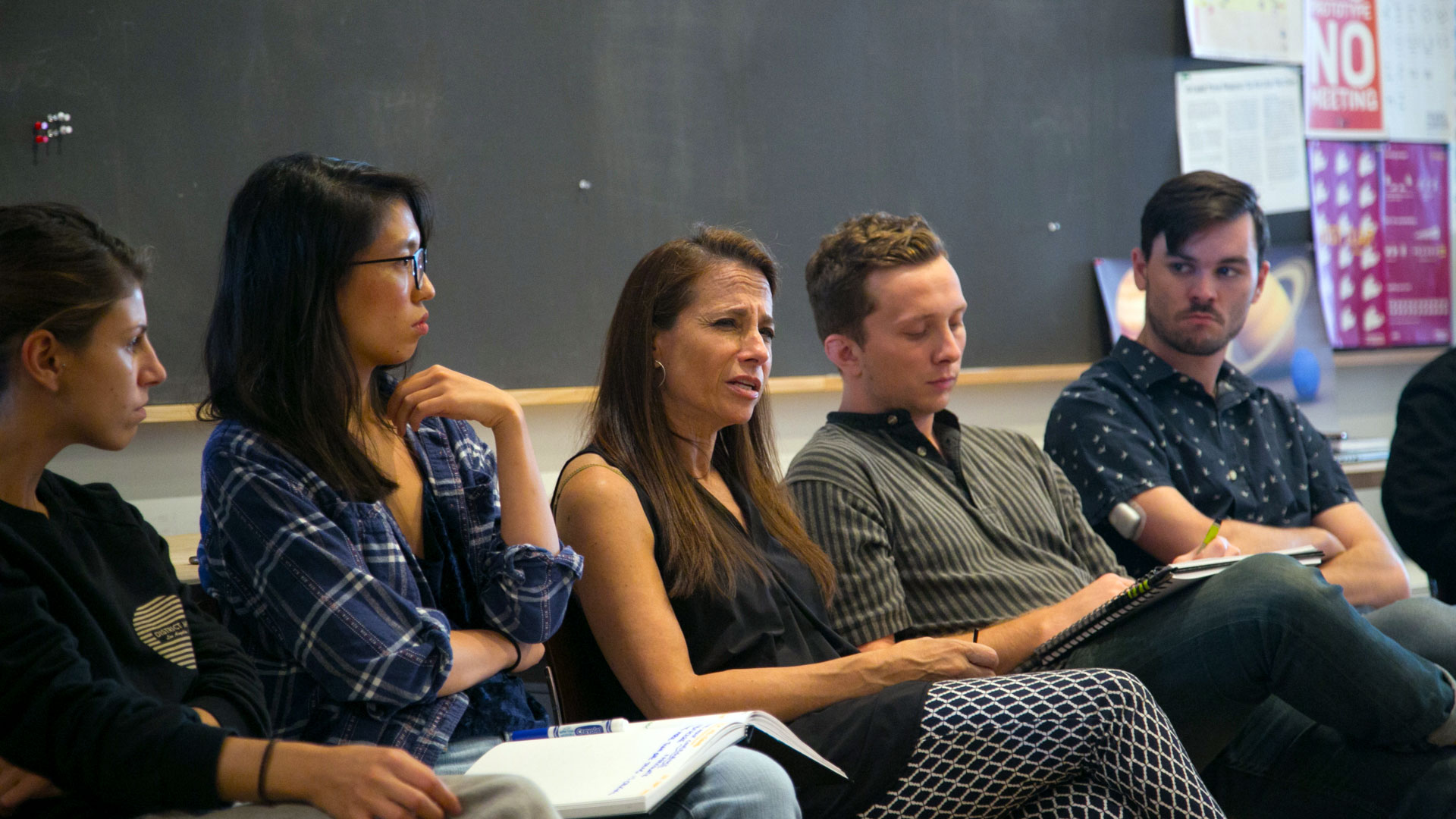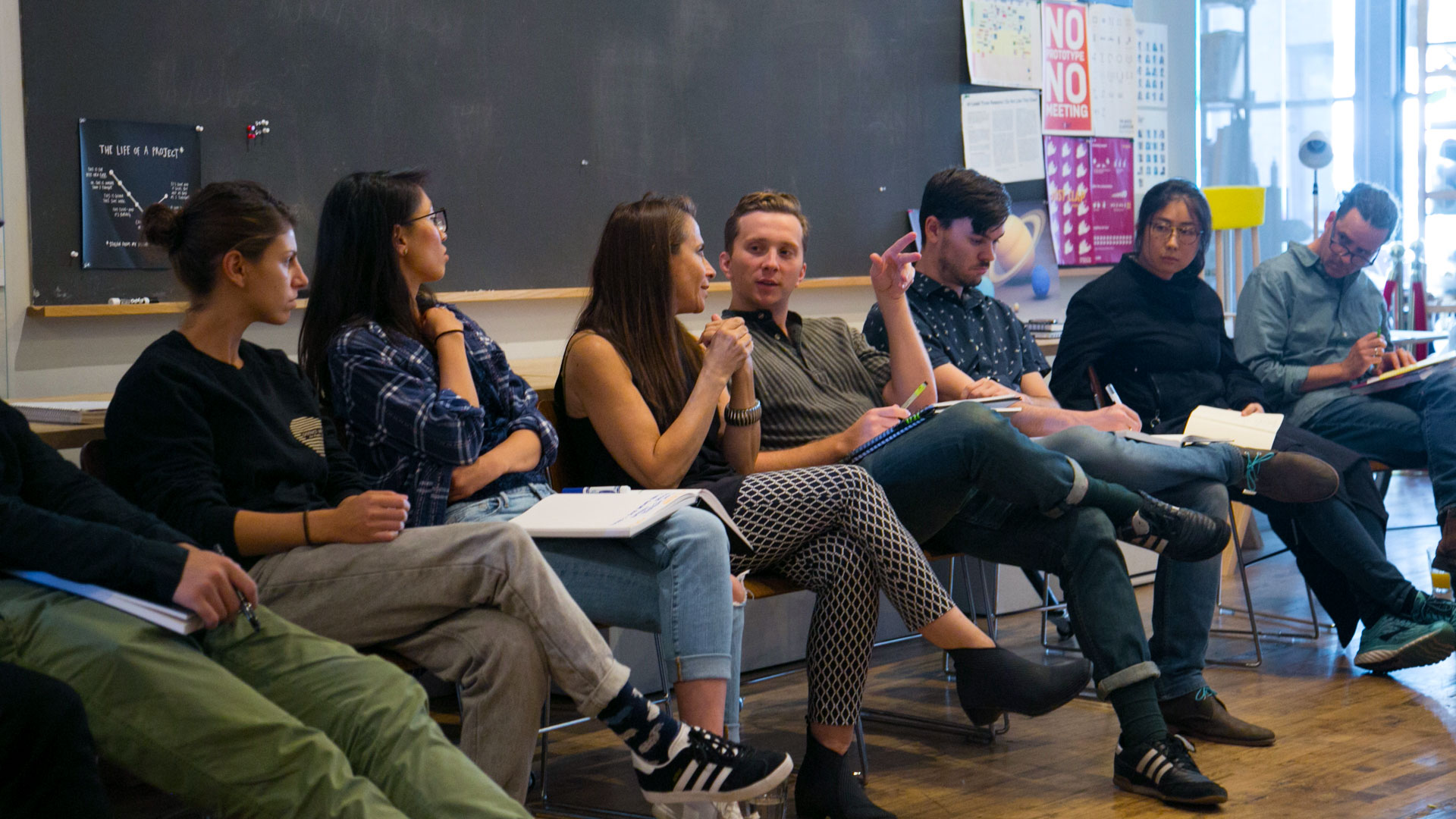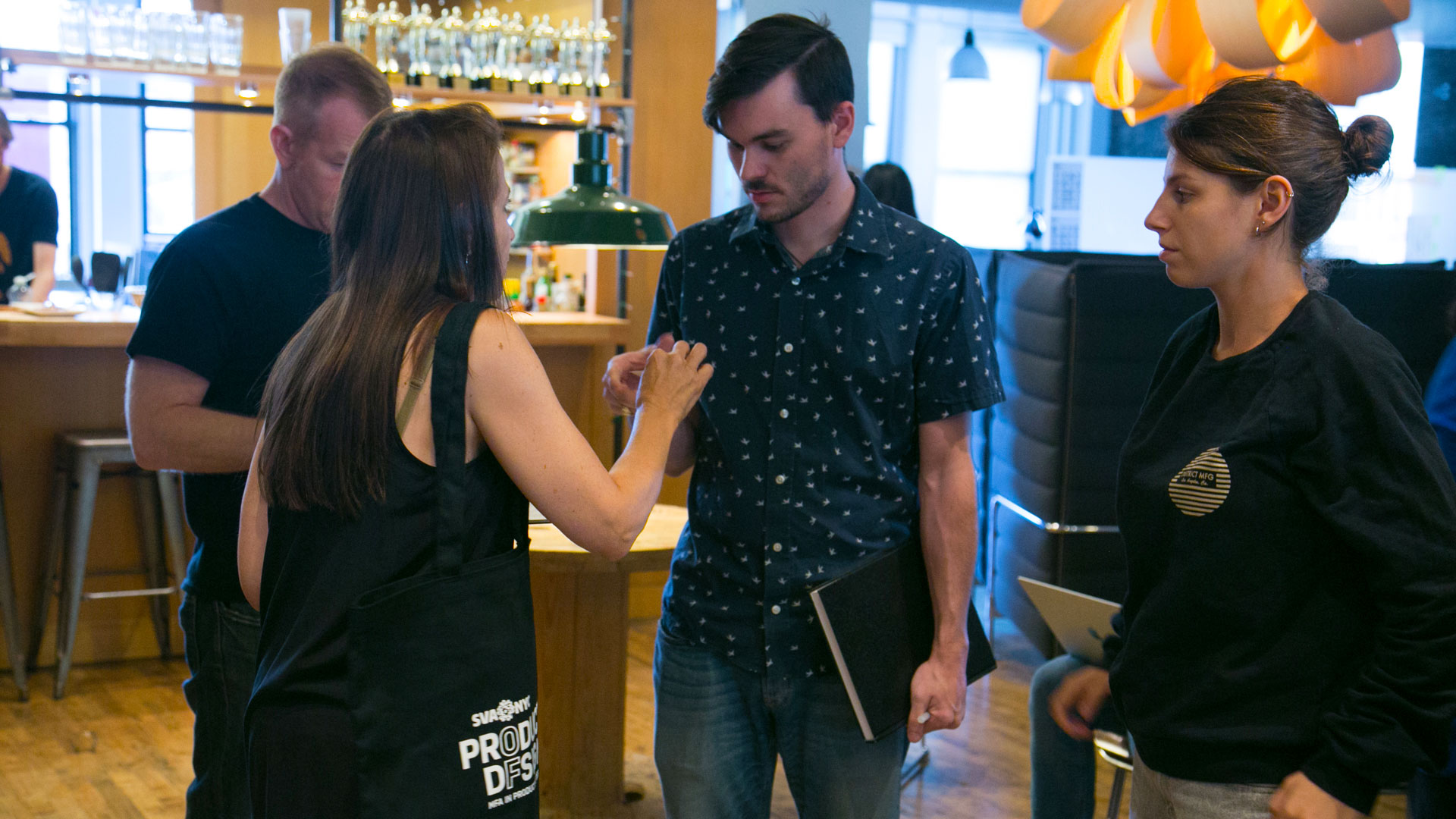A Conversation With Jessica Helfand
Below is a short reflection by Class of 2018 student Lassor Feasley
Products of Design welcomed Jessica Helfand—co-founder of Design Observer and Yale Lecturer in Design and Management—as a guest speaker this past Thursday. Rather than lecturing from a podium, she gave symposium-style comments on the state of design, followed by an informal and wide ranging question and answer session, as well as a reading from her new book, Design: The Invention of Desire.
Jessica’s message to students might best be summed up as follows: designers need to stop being ‘human centric’ and start being ‘humanity centric’. This means that designers must interrogate and design for things like economies, government, cultures, and institutions, rather than limiting their scope only to a single user. (She commended the Products of Design program, and its Founding Chair, Allan Chochinov for working to embody this principal.)
A critic of many of the popular ‘design thinking’ strategies now entering the world of management and corporate consulting, Jessica fears that design might be caricatured as a turn key solution to complex problems, rather than an ethic that must be nurtured and cultivated within both individuals and organizations. She cautioned that while such simplistic and formal ‘process and result’-oriented views of design risk marginalizing the the more subtle aspects of the skills and perspective designers can offer.
While Jessica sees positive developments in the realm of design, she also sees possible pitfalls approaching, and believes that remaining vigilant and critical of the industry (and the work it creates) is vital. For example, she bemoans the techno-utopian linguistic innovations from the start-up industry which have, as though through osmosis, found their way into the mouths of designers. Verbs like ‘hacking’, ‘hustling’, and ‘disrupting’ were particularly galling, as they absolve their practitioners of the obligation to build skills and understand systems before performing design.
Overall, Jessica was optimistic about the designer’s ability to create change in institutions and in society. Although many stakeholders in communities and in business are often uninspired and unambitious, she described the design ethic as something which could be contagious. Approaching unknown systems or confusing problems can be uncomfortable for many, but with open ears, humility, and self-consciousness, designers can help empower stakeholders to work for a better future.
Thank you Jessica for the inspiring visit!


















